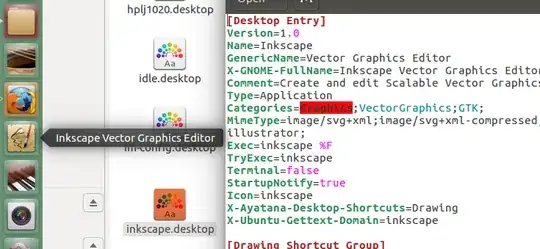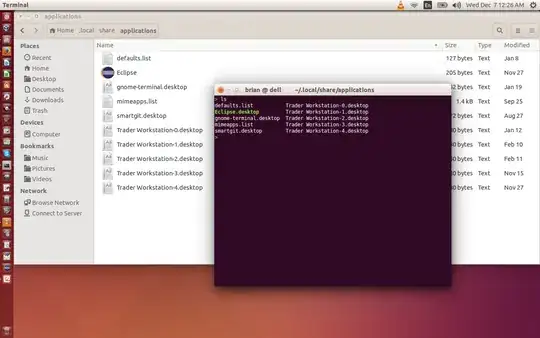About .desktop files and their special function
.desktop files are special files. They represent applications in the GUI, either on your desktop or in Dash/Unity. To do so, a GUI -name of the application is set in a line inside the file in the line
Name=Eclipse
You can simply change the name of how the application shows in Dash and Unity, by changing this line inside the .desktop file, without changing the file name of the .desktop file. In that case, it is irrelevant if the file is executable or not.
If the .desktop file is on your desktop however, if it is not executable, it does not work as a launcher, for reasons explained in souravac's answer, and "shows" under its own (file) name:
eclipse.desktop
If it is executable and on your desktop, it works as a launcher and so it is is representing an application. Then it shows the application's name, as set in the line Name=
Language specific name
If the .desktop file has the line:
X-Ubuntu-Gettext-Domain
the file even shows a language- specific name, fetched from a language file, which will then show in Dash and Unity.
below a complicated example: filename = inkskape.desktop, "basic" interface name = Inkskape, translated name = Inkskape Vector Graphics Editor

The ls command
In the ls command is purely cli- based and always shows the file -name.

